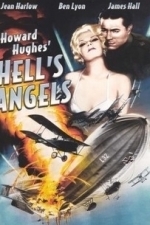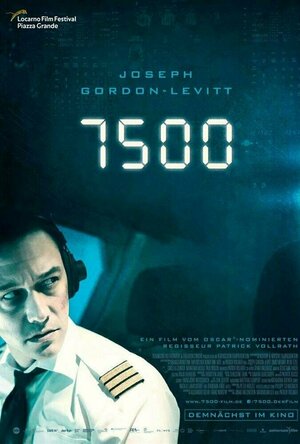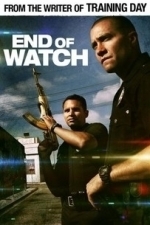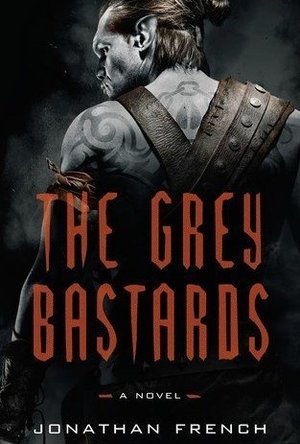
iPharmacy - Drug Guide & Pill Identifier
Medical and Health & Fitness
App
Identify your pills, find the lowest price for your Rx, understand your medication treatment, lower...

Honda Connect
Business
App
In the new update please follow given steps: • Download the latest update from the app store. •...

LumaFusion
Music and Photo & Video
App
LumaFusion is the most powerful multi-track video editor ever created for mobile devices. Used by...
videoediting bestvideoeditingapp professionalleveleditingapp

Easy Books: Accounting
Business and Finance
App
Easy Books is professional business bookkeeping, invoicing and time-tracking for iPad, iPhone and...

TrialPad ™
Business and Productivity
App
Organize and access all your evidence more efficiently, and present more effectively with the top...
RəX Regent (349 KP) rated Hell's Angels (1930) in Movies
Feb 19, 2019
Where to begin?
Well, we follow the Routledge two brothers as they join the war effort and the Royal Air Corps. in 1914 and whilst one is a somewhat cowardly womaniser, his brother is the noble heroic type who spends the film being screwed over bey everyone in one way or another, but most notably by his girlfriend, Jean Harlow, who is so annoyingly wrong for him that it is a relief when he has heart is broken by her in the third act.
But like mots aspects of this plot, this is as messy and disjointed as everything else. We are given a story line to follow for two hours, as Hughes indulges his legendary love of flying to create some of the best dog fight sequences ever committed to film. They are real, epic and effective in conveying the thrilling danger of these world war one battles.
But this is a film of gimmick. Pushing the pre-code envelope with sex and bad language, this was originally conceived as a silent movie and was re-written and re-shot to become the sound movie whcih we have to today and there in clearly lies the problem. What we end up is a movie cobbled together, with silence sequences being converted to sound, the poor acting from its star James Hall as the idealistic Roy Routledge, Jean Harlow, replacing the original silent star Gretta Nissen for this sound version, excelling in her role as his trampy girlfriend and Ben Lyon as the weaker brother, Monte, but the real star of this show are the special effects.
But of the human stars, Harlow, presented here in the only colour footage known to exist of the tragic star, who would die at the young age of 26 just seven years later, probably delivers one of the best performances in the whole picture, certainly outshining her male co-stars.
Of the special effects though, the use of 2-tone Technicolor, which was actually shot with the Metrocolor system but processed by Technicolor, in one sequence as the group are all together at a party, as well as the classical use of tints during some other scenes, add a vibrancy to the project. But this also can have a jarring effect, especially as we leave the colour scenes and wrap up thet sequences in black and white.
But the model effects, notably the munition raid at the end and the Zeppelin bombing London scenes are spectacular, especially for the time. The other notable gimmick which has yet to be transferred to the small screen, was the original use of what was called Magnascope back in 1930.
This was obviously only used at high end theaters but this paved the way for what IMAX are doing now, by blowing up the aerial scenes into a larger screen format from the 1.20:1 ratio which the the rest of film was presented. But when you add all this up you have got a mess!
Magnascope, technicolor scenes, tinted scenes, daring aerial battles, a half arsed love story and an image of world war which was a kin to that of Michael Bay’s Pearl Harbor’s (2001) view of World War 2! But this is what this is. An early, lavish popcorn blockbuster, with little to offer but cinematic thrills, which it succeeds at without any doubt.
The action is great, the plot is mediocre to say the least but as film, it does offer a brief insight into how cinema audiences saw the Great War back in 1930 and you can not help but think that this audience was only nine years away from the next one as we watch this.
pictureBut the ending was grim, with noble ends rounding off a story of brotherly love and love of duty and country, seems overblown considering what we had had to sit through but still, by the end, is anybody really routing for the Routledge brothers to have a happy ending?
I certainly was not. But this ending is the nearest thing that this film has to a story arc, as is pays off the opening act where Roy risks his life fighting a duel for his cowardly brother against the very German officer who is about to have them executed.
Duty wins out and Monte sees the light at the end after a very melodramatic death scene.
But having said all that, this film is worth it for the action alone and for film buffs, the only colour footage of Jean Harlow.
Bob Mann (459 KP) rated 7500 (2019) in Movies
Jun 28, 2020
Here he stars (and really stars) in a small German film. It only had a $5 million budget and in some ways it shows: the speaking cast totals about a dozen; the single location used is the cockpit (an Airbus A320 simulator somewhere? Or a set? The production design is so good, it's difficult to tell) ; and the "score" is so minimalistic (a solo piano piece over the end titles) that it doesn't even merit an IMDB music credit!
But in many ways this is a case of 'small is beautiful'. For this is an extremely tense and claustrophobic action picture.
The Plot: German Captain Michael Lutzmann (Carlo Kitzlinger) and American Co-pilot Tobias Ellis (Joseph Gordon-Levitt) are about to pilot an Airbus A320 on a routine flight from Berlin to Paris. By coincidence, also on the flight is Tobias's partner and mother of his son, stewardess Gökce (Aylin Tezel). Shortly into the flight, three terrorists - Kenan (Murathan Muslu), Daniel (Paul Wollin) and youngster Vedat (Omid Memar) - take over the aircraft. Tobias issues a "7500" (hijack in progress) code. All that is protecting the injured pilots and the security of the 80 people on the flight is the cockpit door.
The film starts slowly, building atmosphere through the pre-flight chit-chat between the pilots and a leisurely take-off. I loved this development of character by Oscar-nominated shorts director Patrick Vollrath. But when the action starts, it starts with a bang and continues in truly tense and visceral style. There's a sense of creeping dread when you realise the terrorist's use of hostages to get the door open, and of who the hostages might be.
I note that one of the "thanks" for the film was director Paul Greengrass, who of course made the outstanding 9/11-themed "United 93" back in 2006. It would be fascinating to understand whether this was a "thank-you" for the inspiration the classic film gave Vollrath, or if there was some practical consultancy undertaken there.
Star of the show here is Joseph Gordon-Levitt who delivers a peerless performance as the pilot under extreme stress. Veering cyclically through terror, emotional breakdown and calm 'training-kicking-in' modes, it's a performance that is almost Oscar nomination-worthy in my book. He's on screen for virtually every shot of the film, and really earned his fee here. He makes for a very believable pilot.
I've read other comment that says the terrorists are rather 2-dimensional in their attempts to "do a 9/11". And to a degree I agree. A nice angle though is the relationship that develops between Tobias and young Vedat in the second half of the movie. There's a 'Stockholm Syndrome' vibe going on here, but this never quite gets resolved satisfactorily.
As such, unfortunately this 'back 9' never really quite lived up to the promise of the first 45 minutes for me. And as a single-location story that had nowhere else to go, the abrupt ending will not be to the liking of some I'm sure.
Not to be confused with the 2014 horror "Flight 7500", this is for once a B-movie that's real nail-biter. The movie doesn't pull its punches, and although there is little of the more graphic violence actually shown, the mind can fill in the gaps effectively which makes for some upsetting moments. Although it never quite lives up to its early promise at only 93 minutes it is strongly deserving of your attention. The movie is available for viewing via Amazon-Prime.
(For the full graphical review please check out One Mann's Movies here - https://bob-the-movie-man.com/2020/06/28/one-manns-movies-film-review-the-7500-2020/ .)
Gareth von Kallenbach (980 KP) rated End of Watch (2012) in Movies
Aug 7, 2019
While the story in this film is as simple as two cops over reaching their pay grades causing them to get on a drug cartels hit list. The film is more like an unrated extended episode of the TV series Cops, focusing on the everyday encounters of our heroes as they patrol south central LA. These encounters range from calls for lost children, domestic disturbance, and noise violations, albeit a bit exaggerated in these and several other incidents. Still the various types of encounters cause the film to feel like a true ride along into the lives of these LAPD cops. Additionally the use of the handheld “found footage” film style works surprisingly well at giving the movie that TV episodic style that makes the overall experience feel realistic. That being said, there are a few scenes where it is not clear who is holding the camera or where the shot is coming from, however these scenes are barely noticeable because of the excellent performances by our protagonists that keeps our interest on what they are saying and doing on screen rather than who is holding the camera.
Officer Bryan Taylor (Jake Gyllenhaal, Source Code) is our main protagonist of this movie. The ex-marine turned cop has to take an art elective in his pre-law studies and decides to take a documentary film class and take us on the inside of the LAPD. Gyllenhaal ‘s performance embodies Taylor as the good natured ambitious officer wanting more in his life of relationships and career. It would be easy for this character to be the traditional good cop in movies like this however given the found footage film style we instead find that Taylor, while good, can also be a complete “jerk” cop who is quick to anger and use brutish force when he deems necessary. This only helps solidify the rawness and reality of this film which pays a nod to the difficult nature of this job for real life police officers. Gyllenhaal gives yet another outstanding performance in his career causing us to grow attached to his character and respect him.
In addition Michel Pena (Crash) delivers a fantastic performance as Taylor’s partner and best friend Officer Mike Zavala. Pena embodies the other side to Gyllenhaal’s “jerk” cop by with his own good natured, simple man who is quick to become a bull when pushed. No more is this better shown in a scene where Zavala and a gang member get into a war of words and caused Zavala to drop his gun and badge and fight man to man to settle their dispute in the “street” way. Thus earning respect from that particular gang member.
Together Gyllenhaal and Pena share the screen wonderfully. Their relationship seems effortless and natural as if they were actually partners and best friends. You can tell they are having fun on set working together and it shows in their performance together as they really get a sense that they are more than partners and friends but are in fact, brothers. Their relationship and characters are only developed further as we watch Taylor pursue a deeper intellectual relationship with scientist Janet (Anna Kendrick, Up In The Air) and Zavala through the birth of his first born from wife Gabby (Natalie Martinez, Death Race). Kendrick and Martinez give believable performances as love interests to our heroes that show us a more human and softer side of these testosterone filled officers who will do whatever it takes to uphold the law. Throw in a strong supporting cast of other police officers led by Frank Grillo (Warrior) who plays the LAPD’s sergeant and you have a performance where we not only care about our heroes but we see the brotherhood of the police force in general.
One thing that I was not expecting from the film is the amount of moments where the audience literally laughed out loud. That is not to say that this is a comedy, in fact it is far from it. But the quick witted jokes and verbal jabs by our onscreen partners help alleviate some of the heavy emotional scenes of the movie. I felt that these characters used that good natured humor to keep themselves from going off of the deep end in handling all of the gruesome encounters they witness. These well placed laughs helped the audience deal with these gruesome scenes as well and helped strengthen our bond with these brothers.
All in all, this movie is a buddy cop film on steroids. While there is not much of a traditional story arch, this helps develop the realistic feel more like an unrated extended episode of Cops. That being said Gyllenhaal and Pena deliver a fantastic performance together. They have a real connection that makes you believe they have been partners for years and consider each other brothers. Add in a solid ensemble cast and the overall experience is worth the price of admission. However those who grow motion sick from found footage films may want to stay clear as there is a definite lack of steady cam
Mandy and G.D. Burkhead (26 KP) rated The Grey Bastards in Books
May 20, 2018
But don’t be fooled into thinking this book will be any less intelligent, epic, or heartfelt for it. The Grey Bastards is all of that and more. The novel follows Jackal, a half-breed orc living in the Lot Lands, the barren desert wasteland of Hispartha. He is a Grey Bastard, one of many half-orc hoofs, each protecting its own small town in the Lots. Members of a hoof are elite warriors that ride out on their Barbarians—giant warthogs—and slaughter invading bands of orcs.
Hispartha is a vibrant world, with a mix of fantastical species (orcs, half-orcs, elves, humans, halflings, and centaurs) with unique cultures and religions. Hispartha itself takes influences from Reconquista Spain, which is especially noticeable in the nomenclature, geography, and architecture.
The primarily atheistic half-orcs recently won their freedom from slavery at the hands of humans. Humans treat the half-orcs like second-class citizens, but tolerate them because of their strength, using them as a shield from the orcs. The elves are beautiful, reclusive, and probably the most cliché; there is one important elf character, but for the most part, we don’t get a good look into their culture in the first book. The centaurs worship Romanesque deities and go on crazed, Bacchanalian killing sprees during the blood moon.
Besides the half-orcs, the halflings are perhaps the most interesting. I still have a hard time visualizing them, trying to figure out if they are thin, pixie-like creatures or more stocky like dwarves. Their small stature and black skin makes me think of pygmies. They worship a god they expect will reincarnate someday, (view spoiler)
One thing that has always annoyed me about fantasy is that many authors feel that the characters of their world, being pre-industrial and thus “medieval,” must all be white, straight, Christian (or proto-Christian), cisgender males. If a woman appears at all is to act as the damsel, prize, or, if she’s lucky, a mystical enchantress to guide the heroes or provide a maguffin. It has come to the point in which this has become a tired and accepted baseline for fantasy. I don’t necessarily think that these fantasy authors are intentionally trying to be uninclusive, so much as they just seem to forget that other groups of people can exist in fantasy thanks to its fathers, Tolkien and Lewis.
But enough with my rant, the purpose of which is to highlight why I am often drawn to grimdark fantasy: at the very least I know that women, people of color, lgbt people, and other religions will be present, even if they are often victimized. This is because grimdark fantasy honestly depicts the horrors of rape, war, murder, slavery, and racism (or rather, speciesism in most cases) and has heroes and villains that are morally grey.
However, many authors describe these atrocities and then leave it at that, assuming that simply depicting them is enough to make a book mature and meaningful. They often fail to make any sort of statement on evil, and thus can seem to be, at best, blindly accepting it and, at worst, glorifying it (this often happens in the cases of magnificent bastard characters, who are absolute monsters but are so charming you almost respect or like them).
Jonathan French, however, does not fall short of the mark as many authors do, and for two main reasons: humor and humanity.
Let’s start with the humor. This book is hilarious. I mean in the I literally laughed out loud while reading it way. Sure, the jokes are often crass, but I have a dirty mind, so inappropriate humor is my favorite kind. The dialogue is especially top-notch, and the interactions between Jackal and his friends Fetching and Oats feel genuine, full of in-jokes, insults, and sexually-charged humor, all of which are exactly how I interact with my own close friends. And every major character in this book is so damn witty that I’m honestly jealous of them. If I could be quick enough to make even one of their zingers at the right time in a conversation, I would feel proud of myself for the rest of the day.
Humor is necessary to prevent any grimdark fantasy from becoming too over-the-top or depressing. And honestly, humor is needed most when the world is a dark and frightening place. But too much humor could accidentally downplay the point of grimdark: the brutally honest depiction of the atrocities that people are capable of.
And this is where it is important to have an element of humanity. By this I mean that the “good guys” must make some action or statement on those atrocities. Too often I read or watch hardened badass characters with no emotion who can watch a person get tortured and killed without flinching (maybe even do it themselves) and who never stop to question the nature of their society (even as part of their character growth), and I have difficulty finding them at all relatable or even the least bit interesting.
Now, often for this type of character, he or she is dead inside as a coping mechanism and part of their character arc is learning to allow themselves to feel their repressed emotions: heartbreak, anger, fear, etc. This can be done very well (see The Hunger Games for a great example—dystopian scifi and grimdark fantasy have very similar undertones). But most times it just ends up falling flat.
But Jackal already starts out with more personality than most grimdark protagonists. He is a humorous and light-hearted person. Sure, he lives in a desert wasteland, his race is entirely created by rape, he’s treated as a second-class citizen, and his life and the lives of those around him are in constant danger of rape and/or murder by invading orcs or blood-crazed centaurs. But despite all of that, he still has a sense of humor, people he loves, a community, ambitions, moral code, and all of the other things that these protagonists are often lacking.
Don’t get me wrong, he can be an asshole, and he’s often acts rashly before he thinks. But the scene that really stuck with me the most was [when Jackal and the wizard Crafty come across an unconscious elf sex-slave. I was expecting him to say something along the lines of “There’s nothing we can do for her, we have to save ourselves” or “This isn’t any of our business” or “It would be best to just put her out of her mercy.” These are the typical lines that a grimdark protagonist might utter while their companion—accused of being a bleeding heart—frees the slave. But this was not the case. Jackal and Crafty both immediately set out to free the girl and steal her away from her owner, despite the danger to themselves. And when he comes across an entire castle-full of these women, Jackal again sets about freeing them without a moment’s hesitation. (hide spoiler)]
And it’s no surprise that Jackal has a serious problem with rape. As I’ve mentioned before, half-orcs are entirely the product of roving bands of orcs raping human, elven, or even half-orc women. [When Jackal learns that Starling, the elf slave he rescued, is pregnant with a half-orc baby, he is not only furious with the orcs that gang-raped her, but also disturbed by the fact that elven society shuns any of their women who have been raped, and that these victims often end up taking their own lives rather than give birth to an impure half-elf. (hide spoiler)]
Furthermore, Jackal, unlike many people in Hispartha, does not buy into misogyny or sexism. His best friend Fetching is the first female half-orc to have joined a group of riders. Not only does Jackal respect Fetching, he understands the emotional turmoil that she is dealing with being the first female rider and how she overcompensates as a result to earn the respect of the other men.
While there is quite a bit of speciesism (pretty much none of the species get along with one another), the inhabitants of Hispartha come in every skin color and nobody gives a damn. Furthermore, sexuality is primarily treated as each person’s individual preference and nobody else’s business. While characters may make jokes about acting “backy” (gay), these are made in good humor between friends, and nobody gets particularly offended by them. Fetching is herself openly bisexual (though she seems to suppress her heterosexual desires more than her homosexual ones out of that same need to be “one of the boys”), and Oats and Jackal are one of my favorite bromantic pairings.
Grimdark fantasy can often be depressing to read. But Jonathan French does an excellent job of infusing hope into his narrative. The story actually has a happier ending than I was expecting. [I was especially pleased when Jackal chooses Fetching to be the new leader of the hoof (she is voted in unanimously by the other riders). I find it incredibly annoying in books and movies when revolutionaries/usurpers decide to appoint themselves leaders, as the former does not qualify you for the latter. Part of Jackal’s arc is realizing that he is not meant to lead the hoof like he’d once desired. (hide spoiler)]
For the sequel, The True Bastards, I’m hoping to see [if a cure can be found for the thrice-blood child now infected with plague, how Fetching is doing leading the hoof, and what the mysterious Starling is up to (I don’t buy for a second that she’s killed herself). And of course, I fully expect that Jackal is going to have to fulfill his empty promise to the halfling’s resurrected god, Belico.



